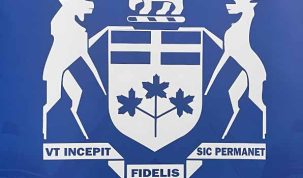Province Building a Better-Connected Mental Health and Addictions System
The Ontario government is investing over $12.8 million to immediately expand and enhance culturally appropriate mental health and addictions services for Indigenous peoples, families and communities across the province. This funding is part of the $176 million being invested in the government’s mental health and addictions plan, Roadmap to Wellness. The plan is delivering high-quality care and building a modern, connected and comprehensive mental health and addictions system.
Details were provided today by Christine Elliott, Deputy Premier and Minister of Health, and Michael Tibollo, Associate Minister of Mental Health and Addictions.
“Now more than ever, it is critically important to ensure that everyone, including Indigenous communities, can access the safe and effective mental health and addictions services they deserve – when they need them and where they need them,” said Minister Elliott. “Our government is committed to working with Indigenous communities and other health system partners to build a comprehensive and connected mental health and addictions system that people from every corner of the province can access.”
The government is making investments to expand and enhance community-based mental health supports and services in collaboration with Indigenous partners and through targeted programs focused on Indigenous children and youth, including:
- $6.875 million to increase the capacity of community-based and Indigenous-led supports, including the Family Well-Being Program, which provides needs-based services for young Indigenous people in the youth justice system who have complex mental health and substance use needs. The funding will also be used to recruit two community-based mental health and addiction liaisons to help Indigenous-led organizations better address the complex needs of Indigenous survivors of human trafficking;
- $1.4 million in enhanced community mental health and addictions services and programs in Indigenous-governed primary care teams;
- $1.412 million to help address gaps and barriers that Indigenous students and their families experience in the school system and support educational retention and success by:
- increasing funding to Indigenous Graduation Coaches to increase outreach and support during the summer months;
- funding the development of culturally appropriate cannabis training and resources for Indigenous students;
- funding the development of a new strength-based initiative to support young Indigenous women and girls who have lived experience of violence, and/or who have witnessed violence in their families and communities; and
- funding the implementation of the model for Trauma-Informed Schools as a system-wide model.
- $1.375 million annually over ten years to support the creation and implementation of 11 new Social Emergency Manager positions in Nishnawbe Aski Nation (NAN) and Grand Council Treaty #3 (GCT#3) First Nation communities, which will build capacity around social emergency prevention, mitigation, preparedness, response and recovery efforts;
- $1 million to expand the child and adolescent psychiatry program based in Thunder Bay, with satellite service locations across Northwestern Ontario; and
- $900,000 to support additional Indigenous focused mental health and addictions services and programs related to community safety and education.
“For far too long, Indigenous peoples and communities across Ontario have been faced with gaps and barriers to accessing effective mental health and addictions supports that meet their unique needs,” said Associate Minister Tibollo. “By expanding access for Indigenous communities to higher-quality and culturally appropriate mental health and addictions services, we’re taking another important step in building a mental health and addictions system that fully supports people of all ages in their journey towards mental wellness.”
“Supporting the health and well-being of Indigenous peoples across Ontario is an ongoing priority for our government,” said Greg Rickford, Minister of Indigenous Affairs. “These investments will help ensure Indigenous peoples, families and communities continue to have access to culturally appropriate and responsive mental health and addictions supports and services.”
Quick Facts
- To enable Roadmap to Wellness, Ontario is investing $3.8 billion over 10 years to create new services and expand programs.
- Ontario has invested $350 million in new annualized funding for mental health and addictions services since 2019-20. In October 2020, the government invested $176 million to help expand access to critical mental health and addictions services, create new supports and expand programs, building on the $174 million invested last year for mental health and addictions programs.
- In response to the COVID-19 outbreak, the province invested up to $194 million in emergency funding for mental health and addictions services. The emergency funding for mental health and addictions has already helped more than 57,000 Ontarians continue to access services they need during this challenging time, including new supports such as virtual tools and counselling.
- To find the right supports for you, visit COVID-19: Support for People.
Additional Resources
- Ontario Adding More Mental Health Beds and Programs for Seniors
- Ontario Increasing Mental Health and Addictions Services
- Ontario Expands Funding for Supportive Housing
- Ontario Expanding Mobile Crisis Services to Respond to Mental Health Emergencies
- Ontario Expanding Mental Health Services for Children and Youth
- Ontario Building a Modern, Connected and Comprehensive Mental Health and Addictions System
- Ontario Unveils Plan to Build Mental Health and Addictions System
- Visit Ontario’s website to learn more about how the province continues to protect Ontarians from COVID-19.
Related Topics
Government
Learn about the government services available to you and how government works. Learn more
Health and Wellness
Get help navigating Ontario’s health care system and connecting with the programs or services you’re looking for. Learn more






















